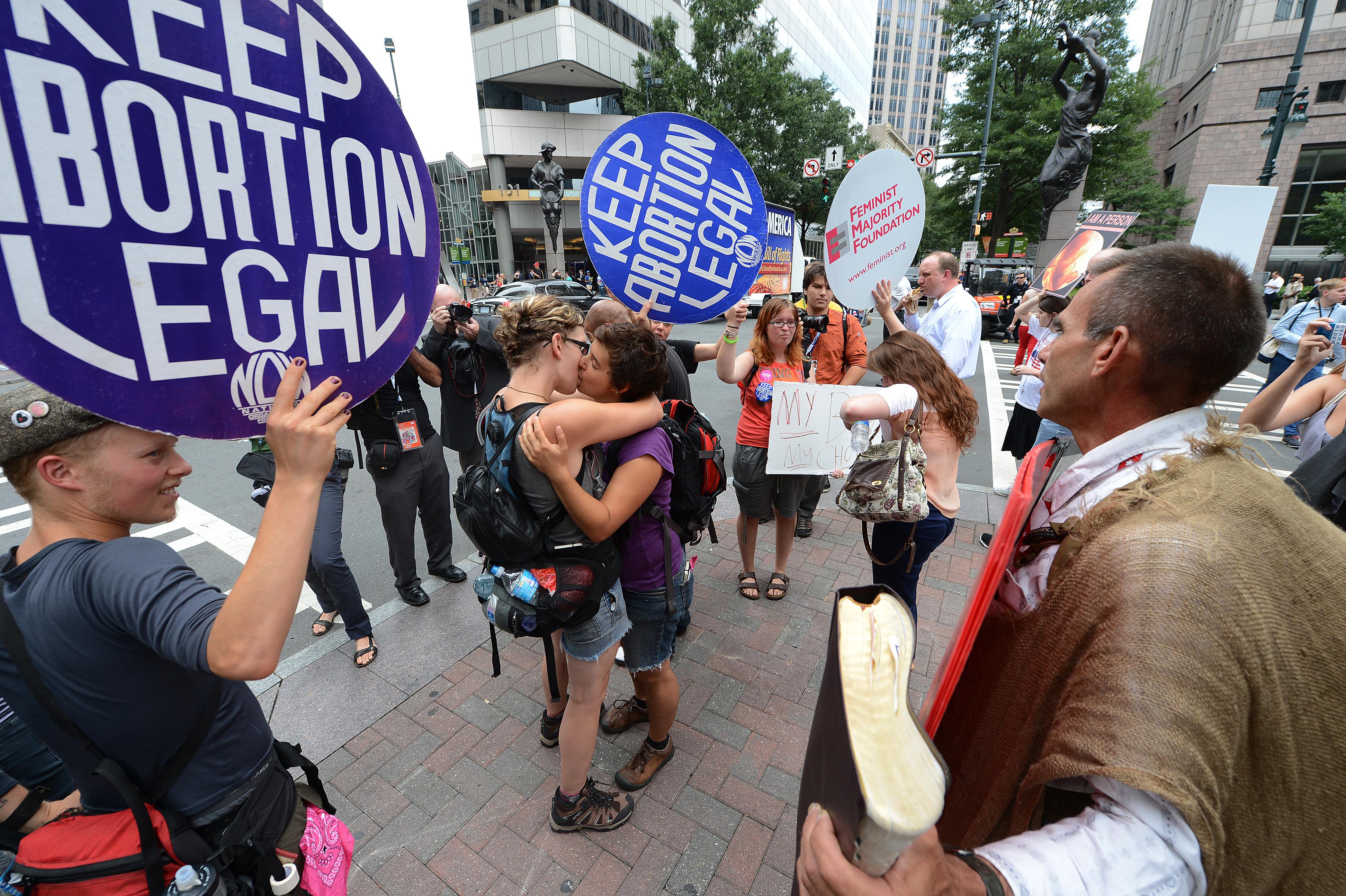In March, Gov. Jack Dalrymple signed legislation that would give North Dakota the most restrictive abortion laws in the country. The measure that headlined the legislation, you may remember, was a ban on the procedure as soon as a fetal heartbeat is detected, something that can happen as early as six weeks in. Under the legislation, however, the measures don’t go into effect until August 1, something that gave the pro-choice crowd a short window to challenge it in court. Today that window just got a lot wider—and the law’s already dismal prospects of survival became that much more clear. The Washington Post with the details from the federal court ruling that temporarily blocks the law until the legal challenge is fully settled:
The preliminary injunction granted at the request of the Center for Reproductive Rights means the nation’s most restrictive abortion law … will not take effect Aug. 1, as originally planned. It also suggests that even as states across the country enact measures limiting abortion access, some of these laws may never take effect because of stiff legal challenges. U.S. District Judge Daniel L. Hovland’s ruling criticized the North Dakota measure in the harshest possible terms, calling it “clearly unconstitutional under an unbroken stream of United States Supreme Court authority.”
“The State has extended an invitation to an expensive court battle over a law restricting abortions that is a blatant violation of the constitutional guarantees afforded to all women,” Hovland wrote in reference to Roe v. Wade, the Supreme Court ruling that legalized abortion up until a fetus is considered viable, usually at around 22 to 24 weeks. “The United States Supreme Court has unequivocally said that no state may deprive a woman of the choice to terminate her pregnancy at a point prior to viability.”
In addition to the fetal heartbeat provision, the N.D. law also would impose the first state ban on abortions based on genetic defects such as Down syndrome, and makes it generally more difficult for a doctor to perform the procedure by requiring those who do to have hospital-admitting privileges.
***Follow @JoshVoorhees and the rest of the @slatest team on Twitter.***
